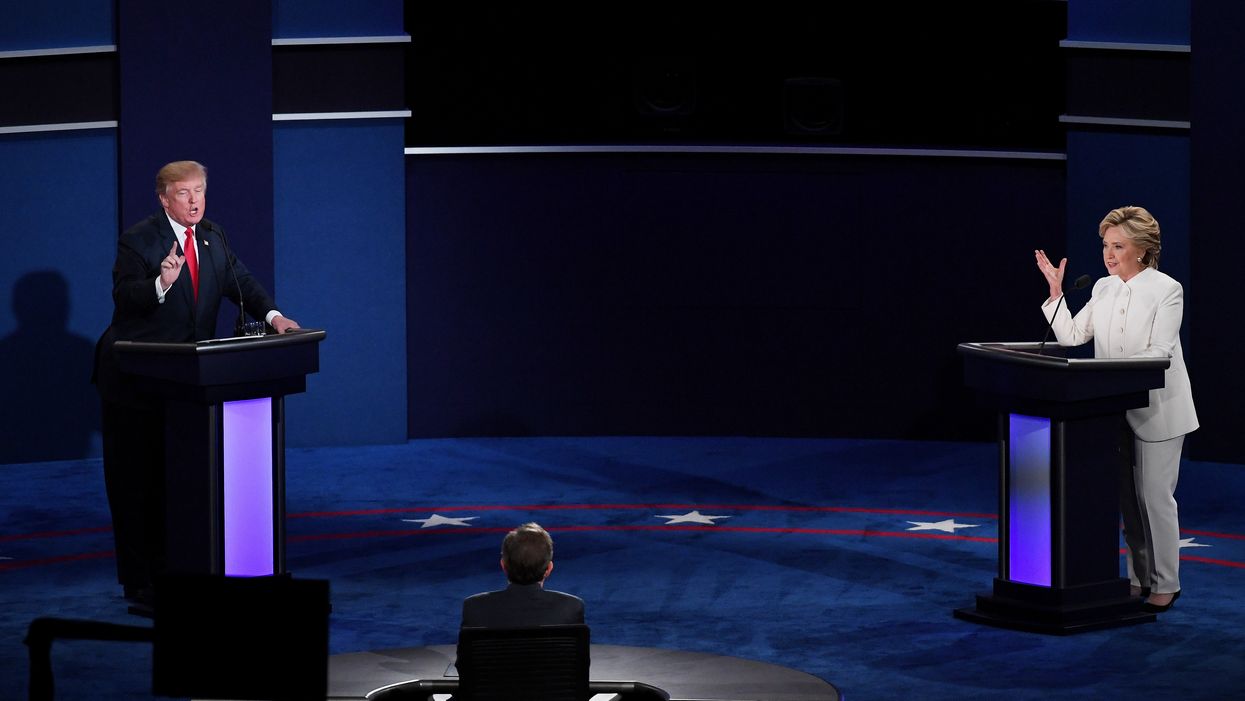Beckerman is the founder of Open the Debates, a cross-partisan group that advocates allowing more third party and independent candidates to participate in campaign debates.
Are you sick of our political discourse yet? I know I am.
Are you tired of being trapped in a two-year vortex of nauseating presidential politics every four years?
For better or worse (okay, definitely worse), presidential campaigns capture the energy and attention of voters and leave us feeling powerless to fix a completely broken political system. Candidates that aim to fix the system — think John Anderson, Ross Perot, Ron Paul, Ralph Nader, Gary Johnson and Jill Stein — get shut out of the main conversation.
There have been countless efforts to hold the self-proclaimed Commission on Presidential Debates accountable to produce fair and inclusive debates. But it is a private corporation created by the Democratic and Republican parties, and it has the political establishment's blessing to maintain a duopoly on presidential debate participation. The courts, so far, have obliged.
If we are ever going to succeed at opening up the presidential debates to more voices and better choices, we need to do two big things that will take the decision-making out of the hands of some untouchable front-group for the two parties:
First, we need to organize the 46 percent of Americans who consider themselves political independents, the 68 percent of Americans who think we need at least a third major party and the 76 percent of voters who want open debates.
Second, we need to create a national organization that can build a grassroots, cross-partisan movement to effectively challenge exclusionary debates everywhere they occur.
Former Speaker Tip O'Neill was best known for the adage that "all politics is local." While some argue that national politics can often be more important and influential in people's lives and political realities, the truth is that the core of all of our politics and political discourse is human interaction, influence and decision-making.
And when the system, as Nader put it, is rotten to its core, it shouldn't be surprising just how rotten the political conversation has become.
What we need in this country, and what a huge majority of us are open to, is political transformation. That starts with you — in your community, your town, your local political scene and your local social scene. It starts with us — all of us committing to rise above the rotten political discourse, to come together across the political spectrum and across ideological, geographic, economic, racial and religious divides to fix a rotten system.
The modern political system is designed to keep the voices of the We, the People out of the mix. When candidates put themselves forward as an option, they should be given a forum and a level playing field to get their ideas across. When media and establishment gatekeepers stand in the way of voters trying to get informed about all of their ballot choices, you have to ask yourself why. And you have to ask yourself, "What am I going to do about it?"
Here's the good news: After a whole slew of exclusionary forums, debates, and media coverage in this year's mayoral race in Nashville, the two most recent forums were opened up to all candidates on the ballot, and the resulting coverage reflected that. In Salt Lake City, meanwhile, when the first mayoral debates were slated to leave out half the field of eight candidates, the candidates themselves (including the front-runner) protested and the debate hosts relented.
Indeed, it is local, grassroots action supported by national organization that is the key to breaking through the fortress of protection that the two major parties have built up around themselves. We know we can win locally. And we believe we can grow this movement from the ground up through local wins and organizing, in addition to building a national vehicle for fair, robust and meaningful debates.
After seven years of dabbling on the sidelines, railing against the corrupt Commission on Presidential Debates while begging it to open up the presidential debates to more voices, Open the Debates is now raising and spending money to create that vehicle. We are now a fiscally sponsored project of Mediators Foundation and we are taking on the issue of exclusionary debates in a way that can transform our political system and open it up to new ideas, fresh voices and better choices.
I invite you to join with us. We aim to put inclusive, informative and engaging debates at the forefront of the reforms that are gaining serious traction like ranked-choice voting, fair districting, open primaries, clean elections and even proportional representation.
With just 1 in 10 Americans thinking the two-party system is working even fairly well, the time is now to spark political transformation that works for all of us.


















